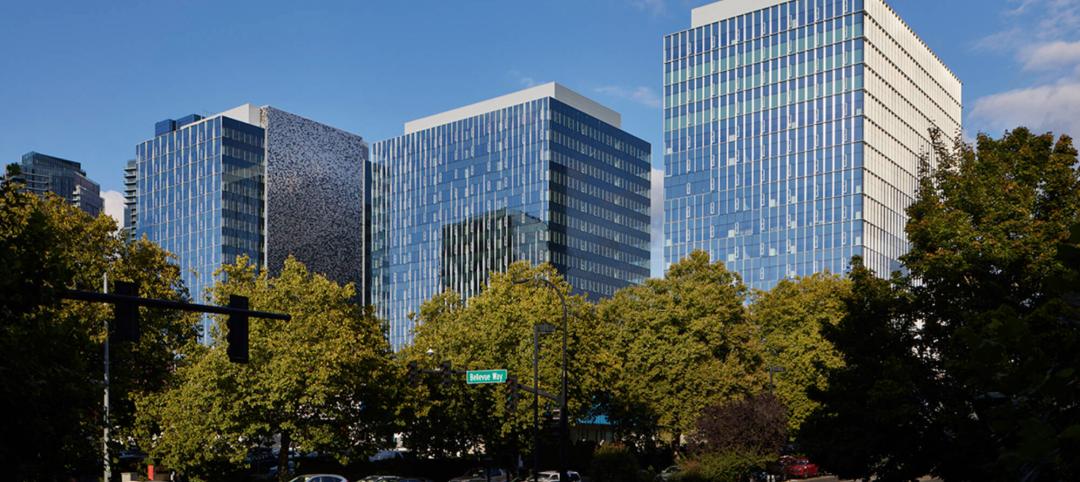The addition of air curtains in the International Green Construction Code (IgCC), the new comprehensive high performance green building code, promises energy and construction cost savings for commercial, industrial and institutional buildings.
Specifying air curtains as energy-saving, cost-cutting alternatives to vestibules in 3,000-square-foot buildings and larger has been a recent trend among consulting engineers and architects. However, many times specifications are blocked by local jurisdictions that have adopted the International Energy Construction Code (IECC), which doesn't yet sight air curtains as vestibule alternatives.
Thus, the newly-enacted IgCC, which is scheduled for March 2012 publishing, now provides an approved overlay of green construction products to the base code IECC, which is overseen by the International Code Council, the Washington-based organization responsible for providing minimum safety, sustainability and affordability building codes and standards.
Recent proposals to the IgCC by the Air Movement and Control Association International (AMCA), Arlington Heights, Ill., helped establish air curtains as a vestibule alternative with the stipulation that they're tested in accordance with ANSI/AMCA Standard 220-05, "Laboratory Methods of Testing Air Curtains for Aerodynamics Performance Ratings."
Also helpful in the code modification effort were recent studies proving air curtains as 10% more energy-efficient than vestibules. The three-month research study “Air Curtains: A Proven Alternative to Vestibule Design” used second-party validation from research/validation consultant, Blue Ridge Numerics, Charlottesville, Va., with certified results from proven computational fluid dynamics (CFD) analysis.
Besides energy savings, vestibules, especially in retail settings, consume anywhere from 25 to 250 square feet of usable retail space and carry construction costs ranging from $3,750 to $37,500, based on an average of $150/square feet construction costs.
Meanwhile air curtain proponents will continue to present energy efficiency data to code committees, in hopes of instituting the vestibule alternative measure into the IECC. The next meeting on the subject is scheduled in January 2013.
Related Stories
AEC Tech Innovation | Oct 8, 2024
New ABC technology report examines how AI can enhance efficiency, innovation
The latest annual technology report from Associated Builders and Contractors delves into how artificial intelligence can enhance efficiency and innovation in the construction sector. The report includes a resource guide, a case study, insight papers, and an essay concerning applied uses for AI planning, development, and execution.
Healthcare Facilities | Oct 8, 2024
Herzog & de Meuron completes Switzerland’s largest children’s hospital
The new University Children’s Hospital Zurich features 114 rooftop patient rooms designed like wooden cottages with their own roofs. The project also includes a research and teaching facility.
Mixed-Use | Oct 7, 2024
New mixed-use tower by Studio Gang completes first phase of San Francisco waterfront redevelopment
Construction was recently completed on Verde, a new mixed-use tower along the San Francisco waterfront, marking the end of the first phase of the Mission Rock development. Verde is the fourth and final building of phase one of the 28-acre project that will be constructed in several phases guided by design principles developed by a design cohort led by Studio Gang.
Brick and Masonry | Oct 7, 2024
A journey through masonry reclad litigation
This blog post by Walter P Moore's Mallory Buckley, RRO, PE, BECxP + CxA+BE, and Bob Hancock, MBA, JD, of Munsch Hardt Kopf & Harr PC, explains the importance of documentation, correspondence between parties, and supporting the claims for a Plaintiff-party, while facilitating continuous use of the facility, on construction litigation projects.
Glass and Glazing | Oct 7, 2024
Pattern language: An exploration of digital printing on architectural glazing
Architectural Glazing has long been an important expressive tool which, when selected and detailed thoughtfully, can contribute to the successful transformation of architectural concepts to reality.
University Buildings | Oct 4, 2024
Renovations are raising higher education campuses to modern standards
AEC higher ed Giants report working on a variety of building types, from performing arts centers and libraries to business schools. Hybrid learning is seemingly here to stay. And where possible, these projects address wellness and mental health concerns.
AEC Tech | Oct 3, 2024
4 ways AI impacts building design beyond dramatic imagery
Kristen Forward, Design Technology Futures Leader, NBBJ, shows four ways the firm is using AI to generate value for its clients.
Laboratories | Oct 2, 2024
Trends in scientific research environments: Q&A with Flad's Matt McCord
As part of an ongoing series, Matt McCord, AIA, NCARB, LEED AP BD+C, Associate Principal with Flad Architects, discusses the future of the scientific workplace.
Museums | Oct 1, 2024
UT Dallas opens Morphosis-designed Crow Museum of Asian Art
In Richardson, Tex., the University of Texas at Dallas has opened a second location for the Crow Museum of Asian Art—the first of multiple buildings that will be part of a 12-acre cultural district. When completed, the arts and performance complex, called the Edith and Peter O’Donnell Jr. Athenaeum, will include two museums, a performance hall and music building, a grand plaza, and a dedicated parking structure on the Richardson campus.
Data Centers | Oct 1, 2024
10 biggest impacts to the data center market in 2024–2025
While AI sends the data center market into the stratosphere, the sector’s accelerated growth remains impacted by speed-to-market demands, supply chain issues, and design innovation necessities.

















